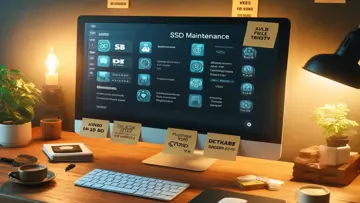Seamless OPC Data Access with OpenOPC for Python
OpenOPC for Python by barryb simplifies the integration of OPC data sources within Python applications, making it an essential tool for automation and industrial data analysis.
Introduction to OpenOPC for Python
OpenOPC for Python is a convenient and efficient library that enables Python developers to interact with OPC (OLE for Process Control) servers. It is created by Barry B. and serves as an important tool for integrating different automation systems and retrieving data in Python applications. This library is primarily aimed at engineers and developers working in industrial automation, allowing them to communicate with various OPC-compliant software systems effortlessly.
Key Features
- Simplicity: OpenOPC streamlines the process of reading and writing to OPC servers, abstracting the complexities inherent in traditional OPC stack implementations.
- Support for Multiple OPC Standards: The library supports both OPC DA (Data Access) and OPC XML-DA standards, allowing for a wide range of compatibility with existing systems.
- Python Integration: Being a Python library, it allows developers to incorporate OPC functionality into their applications without needing to learn additional programming languages.
- Cross-Platform Support: OpenOPC for Python works across different operating systems, making it versatile for various development environments.
- Robust Documentation: Comprehensive documentation is provided, helping users troubleshoot issues and understand the API methods effectively.
Installation Process
The installation of OpenOPC for Python is straightforward. Users can install the library using pip, which simplifies package management in Python. The command is as follows:
pip install OpenOPC
This command will fetch the latest version from the Python Package Index (PyPI) and install it along with its dependencies.
Getting Started
To start using OpenOPC, a connection must be established with an OPC server. Below are some basic steps highlighting the process:
- Import the OpenOPC module.
- Create an instance of the OpenOPC class.
- Connect to the desired OPC server using its name and specify credentials if needed.
import OpenOPC
opc = OpenOPC.open_client('your_opc_server_name')
opc.connect()
This simple code snippet sets up a connection to an OPC server where 'your_opc_server_name' should be replaced by the actual name of your OPC server.
Data Access Methods
OpenOPC provides multiple methods for accessing data from OPC servers. Some key methods include:
- Read: Retrieve single or multiple items from the OPC server using their item IDs.
data = opc.read('ItemID1', 'ItemID2')- Write: Write values to specified items on the server.
opc.write('ItemID1', value)- Subscribe: Set up monitoring for changes in specific items’ values on the server.
opc.subscribe('ItemID1')- IsConnected: Check the connection status of the client to the server.
connected = opc.is_connected()
Error Handling
Error handling is crucial when dealing with network-based applications. OpenOPC provides exception handling options, which can help manage potential communication failures or data retrieval errors. It’s important to wrap calls in try-except blocks to handle these exceptions gracefully:
try:
data = opc.read('ItemID1')
except Exception as e:
print(f"An error occurred: {e}")
Troubleshooting Common Issues
<pWhile working with OpenOPC, users may encounter several issues. Here are common problems along with potential solutions:- Connection Issues: Ensure that the OPC server is running and accessible over the network. Check firewalls or network settings that might be blocking access.
- No Data Returned: Verify that item IDs used in read requests are correct and exist on the OPC server.
- Piping Problems on Windows: Users may need to ensure that DCOM permissions are correctly configured if facing issues related to connectivity on Windows systems.
- User Permissions: Ensure that your user has adequate permissions set in both the operating system and within the OPC server application itself for data access or operations.
User Community and Support
The community around OpenOPC for Python includes a variety of engineers, developers, and users who have experience working with different automation technologies. Forums, mailing lists, and online groups can often provide assistance if users run into difficulties or have questions regarding advanced functionalities.
If You're Ready To Explore
If you’re an engineer or developer looking for a robust solution for interacting with OPC servers using Python, OpenOPC presents itself as a highly useful tool. Its straightforward syntax, comprehensive functionalities, and extensive compatibility make it a top choice among its peers in the field of industrial automation integration.
The ongoing support from Barry B. facilitates further improvements and often introduces new features tailored to meet evolving user needs in real-world applications.
Your Next Steps
Diving into OpenOPC for Python will empower your applications with seamless data integration possibilities within automated environments. Consider starting small by testing connections and basic read/write operations before moving onto more complex integrations involving subscribing to real-time data changes on your chosen OPC servers.
Overview
OpenOPC for Python is a Open Source software in the category Development developed by barryb.
The latest version of OpenOPC for Python is currently unknown. It was initially added to our database on 10/16/2009.
OpenOPC for Python runs on the following operating systems: Windows.
OpenOPC for Python has not been rated by our users yet.
Pros
- OpenOPC allows easy communication with OPC servers, making it user-friendly for integrating with industrial automation systems.
- It is based on Python, which is known for its readability and ease of use, allowing for quick development and prototyping.
- The library supports both OPC Data Access (DA) and OPC Alarms & Events (AE), providing flexibility for different types of industrial applications.
- It is relatively lightweight and does not require complex installations, making it accessible for developers.
- The community support and documentation provide helpful resources for troubleshooting and implementation.
Cons
- Limited functionality compared to some commercial OPC libraries, which may offer more advanced features and interfaces.
- As an open-source project, support may vary; users might not get immediate assistance compared to paid software solutions.
- It requires familiarity with OPC standards and protocols, which might pose a learning curve for new users without prior knowledge of these concepts.
- Updates and maintenance depend on community contributions, which may not be as regular as those from commercial software vendors.
FAQ
What is OpenOPC for Python?
OpenOPC is a Python library that allows communication with OPC servers using the OPC (OLE for Process Control) standard.
How does OpenOPC work?
OpenOPC provides a simple and easy-to-use interface for Python to interact with OPC servers, enabling data exchange in industrial automation systems.
Is OpenOPC free to use?
Yes, OpenOPC is an open-source project and is free to use under the GNU Lesser General Public License (LGPL).
What are the requirements to use OpenOPC?
To use OpenOPC, you need to have Python installed on your system along with the pywin32 package for Windows systems.
Can OpenOPC be used for both reading and writing data to OPC servers?
Yes, OpenOPC supports both reading from and writing to OPC servers, making it a versatile tool for interacting with industrial systems.
Is OpenOPC actively maintained?
OpenOPC is maintained by the community and contributions are welcome. However, the last update on the official repository was in January 2017.
Does OpenOPC support asynchronous communication?
No, OpenOPC primarily uses a synchronous communication model where each request waits for a response before proceeding.
Is there a comprehensive documentation available for OpenOPC?
Yes, OpenOPC documentation is available on the project's website and includes examples, tutorials, and API references.
Can OpenOPC be used in industrial automation projects?
Yes, OpenOPC is well-suited for industrial automation projects that require interfacing with OPC servers for data exchange.
Are there any alternatives to OpenOPC for Python?
Yes, there are other Python libraries such as py3opc and AdvancedHMI that can also be used for OPC communication in Python.

Pete Milner
I'm Pete, a software reviewer at UpdateStar with a passion for the ever-evolving world of technology. My background in engineering gives me a unique insight into the intricacies of software, allowing me to provide in-depth, knowledgeable reviews and analyses. Whether it's the newest software releases, tech innovations, or the latest trends, I'm here to break it all down for you. I work from UpdateStar’s Berlin main office.
Latest Reviews by Pete Milner
Latest Reviews
|
|
MatheGrafix
MatheGrafix: Revolutionizing Math Visualization |
|
|
Tavoletta Wacom
Elevate Your Creativity with Wacom's Tavoletta |
|
|
CS 3D Imaging Light
Transform Your Imaging Experience with CS 3D Imaging Light |
|
WeiyunApp
WeiyunApp: Efficient Cloud Storage from Tencent |
|
|
|
115生活
Streamline Your Daily Life with 115生活 |
|
Prima Cartoonizer versión
Transform Your Photos into Cartoons with Prima Cartoonizer! |
|
|
UpdateStar Premium Edition
Keeping Your Software Updated Has Never Been Easier with UpdateStar Premium Edition! |
|
|
Microsoft Edge
A New Standard in Web Browsing |
|
|
Microsoft Visual C++ 2015 Redistributable Package
Boost your system performance with Microsoft Visual C++ 2015 Redistributable Package! |
|
|
Google Chrome
Fast and Versatile Web Browser |
|
|
Microsoft Visual C++ 2010 Redistributable
Essential Component for Running Visual C++ Applications |
|
|
Microsoft OneDrive
Streamline Your File Management with Microsoft OneDrive |





